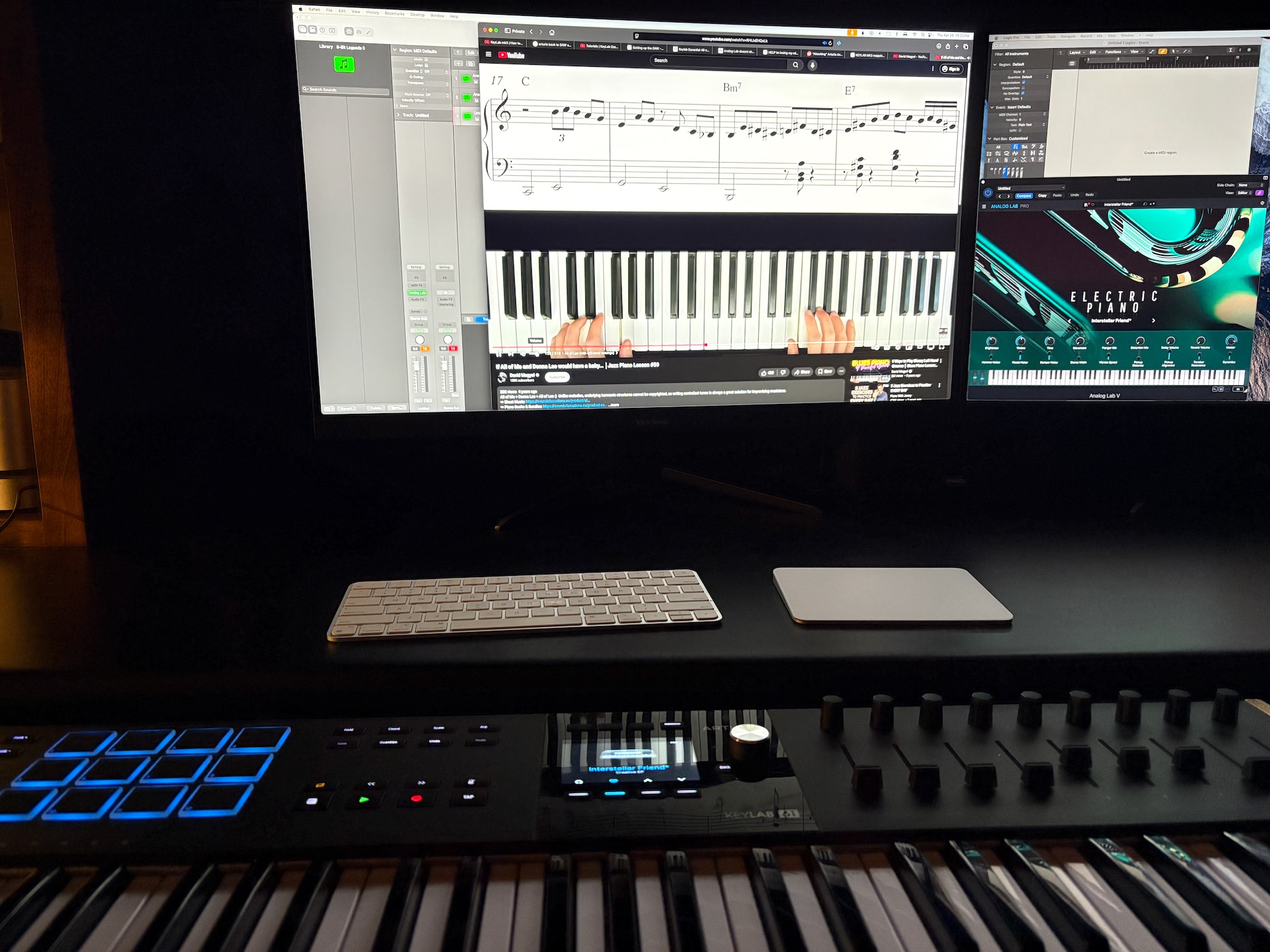Arturia
Today I learned how to control Logic Pro with an Arturia keyboard. I spent hours last night going through hundreds of instruments and getting my hands and fingers accustomed to the keyboard and controls.

After I got it set up and comfortable, I ended up playing along to instructional videos1 for hours. I knew immediately that it was a good move because I wasn't working or adrift on the information highway. I promised myself I'd learn piano at some point and I included a drawer that would hold a keyboard for my new desk setup. Part of the reasoning is that I've finally integrated an audio system into my desk. The timing is perfect now that the new studio2 is in.
I decided on getting a DAW3 so it's multi-functional and I can use it for other audio editing. For the last six months, I've been debating various keyboard setups. At one point, I had decided on a Nord but the four thousand dollar price tag wasn't exactly sliding into my budget after the cabinet construction and computer upgrades. I decided on a Arturia4 KeyLab because of the libraries of instruments and the controls integrate easily with Logic Pro5. By all considerations, I'm a beginner and I only had several years of piano lessons when I was a kid. I took a couple music theory classes in college and I can still read music, but just barely. After my music brain and fingers up to speed, I'll consider the extra octave and fully weighted keys.
As is now a seemingly fundamental part of shopping, I reviewed a ton of reviews and what really stood out where the keyboard enthusiast comparing the sound libraries to the original instruments. I watched the head-to-head reviews of Yamaha, Korg, Roland, & Nord showdowns for things like the best Hammond B3 with a Leslie cabinet. With Arturia, the libraries are on my computer instead of the device which makes perfect sense given my computer is much more powerful than the processors in any keyboard. I've literally got hundreds of vintage instruments at my fingertips that I can load directly into Logic Pro. The only two I added on are a wider assortment of pianos and Stage 736 for the Fender Rhodes7 pedals and customization.
My original intent was mostly about having a new meditative hobby by learning to play some jazz standards. Although it's almost entirely self-serving, I'm looking foward to the parlor trick at a gathering. I'm guessing I'll have to listen to every episode of Marriane McPhartland's Piano Jazz8 and practice nightly for hours if I ever want to hear anything somewhat similar to Bill Evans9 coming from my fingers. I'll give it my best shot though. The almost endless potential repertoire will certainly be challenging and fun to learn especially given my lack of appropriately sized piano fingers.